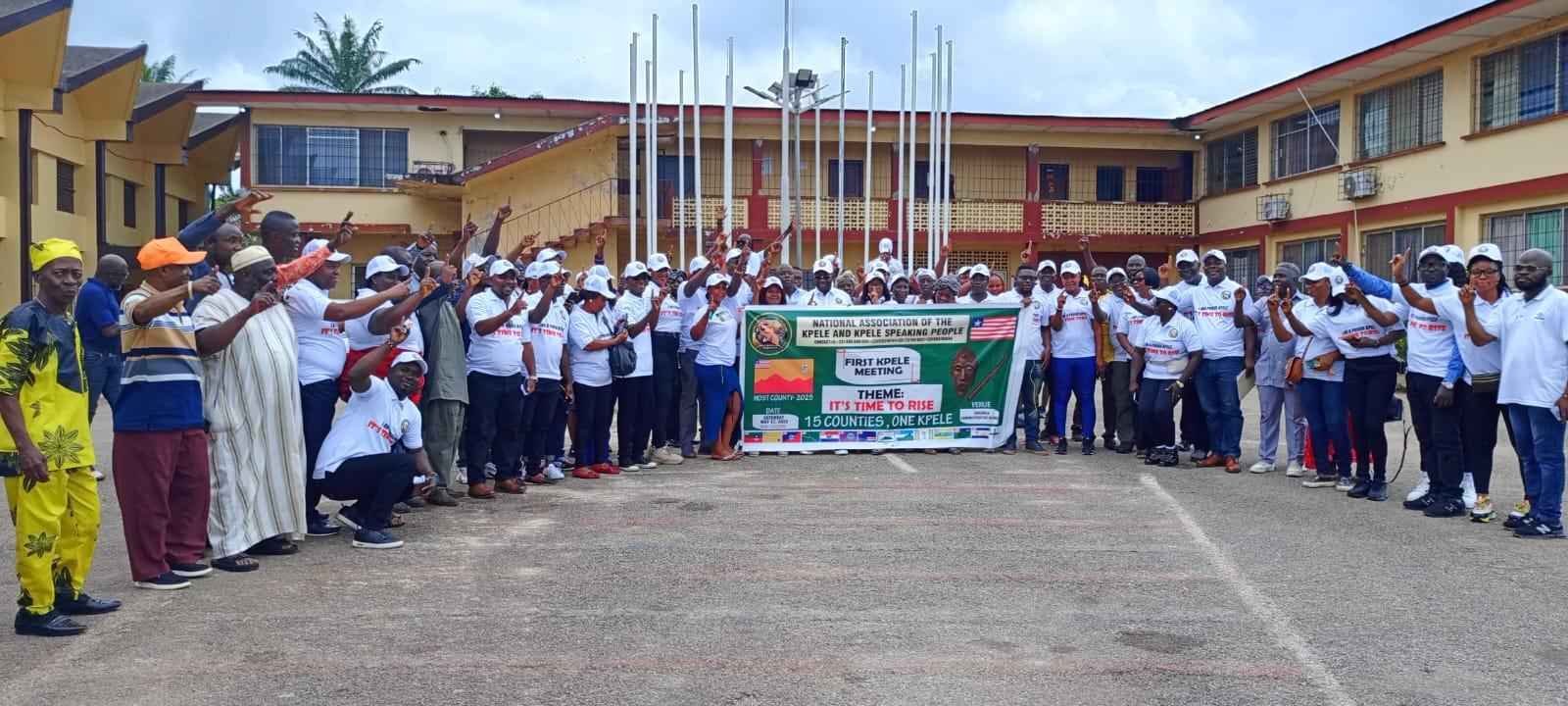Africa-Press – Liberia. In what many are hailing as a turning point in the cultural and political history of Liberia, the Kpelleh people—Liberia’s largest ethnic group—have taken a landmark step toward unity, reconciliation, and cultural preservation.
Under the theme “One Kpelleh People,” the National Kpelleh Speaking Tribe has officially been launched with a declaration of unification, identity consolidation, and future visioning.
The historic gathering, held in Gbarnga, Bong County over the weekend, brought together elders, political leaders, traditional chiefs, youth representatives, and Kpelleh-speaking people from across Liberia. The atmosphere was one of pride, reflection, and renewed hope as voices from the past and present echoed a bold declaration for the future.
Declaration of Unity: “We Are the Kpelleh People”
Reading the official declaration, former Senator Henry Yalleh, Vice Chair for Interpolitical Affairs, delivered a stirring speech that brought many attendees to tears.
His message was both reflective and forward-looking:
“I stand before you not as a distant voice, but as one of you; a child of this proud heritage, shaped by the same soil, stories, and struggles that bind us all.”
Yalleh emphasized the need to move beyond internal divisions—whether by dialect, county, or colonial-era boundaries—and build a unified identity. He challenged the community to reject labels such as “Guinea Kpelleh,” “Margibi Kpelleh,” or “Lofa Kpelleh,” stating firmly:
“From this day forward, all Kpelleh-speaking people shall be known as Liberian Kpelleh.”
He declared the third Saturday of May each year as National Kpelleh Unification Day, a day that will celebrate the strength, resilience, and cultural wealth of the Kpelleh people.
The event featured a series of keynote addresses from notable figures in Liberian politics and academia.
Former Senator Franklin O. Siakor spoke on the topic, “Who Are We and Where Are We From?” highlighting the historical roots of the Kpelleh people and the common values that have endured through centuries of migration, colonization, and modernization.
Dr. J. Kerkula Foeday captivated the audience with his futuristic vision in a talk titled “What We Hope to Be in the Future as Kpelleh People.” Foeday outlined goals for educational advancement, cultural revival, and political representation, encouraging the youth to “embrace technology without losing their heritage.”
Bong County Senator Prince K. Moye offered a heartfelt remark, praising the gathering as “the most significant cultural mobilization of our time.”
Former Vice President Jewel Howard Taylor made a special appearance, endorsing the initiative and calling on national stakeholders to “support this cultural reawakening as a means to national unity and reconciliation.”
The occasion culminated in the formal establishment of the National Association of the Kpelleh and Kpelleh Speaking People, an umbrella organization aimed at strengthening collaboration, fostering unity of purpose, and coordinating development initiatives among Kpelleh communities nationwide.
Yalleh, standing on behalf of the Board of Directors and invoking the legacy of Ambassador Dr. Jeremiah C. Solunteh, made the declaration official. The newly formed body will act as the central voice for Kpelleh-speaking people in national discourse.
From traditional dances to songs in the native Kpelleh language, the event was more than political—it was spiritual. Youths wore traditional regalia, elders shared folk stories, and local artists performed pieces that honored the Kpelleh identity.
There was a collective sense that the day marked not the end of a struggle, but the beginning of a movement.
As one speaker powerfully stated, “This future is not a distant fantasy, it is a choice.” The newly declared National Kpelleh Speaking Trip aims to translate words into action—reclaiming language, reuniting communities, and repositioning the Kpelleh people as a unified force in Liberia’s democratic and cultural landscape.
Whether through educational initiatives, cultural festivals, or political engagement, the Kpelleh people are rising. Their story, once fragmented by internal divisions and external pressures, is now being rewritten—with pride, purpose, and unity at its core.
Indeed, the story of the Kpelleh does not end here. It begins anew—today.
For More News And Analysis About Liberia Follow Africa-Press






